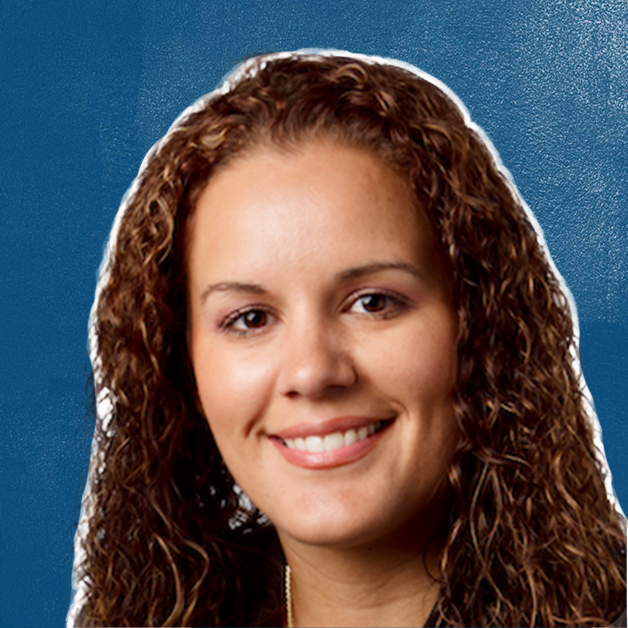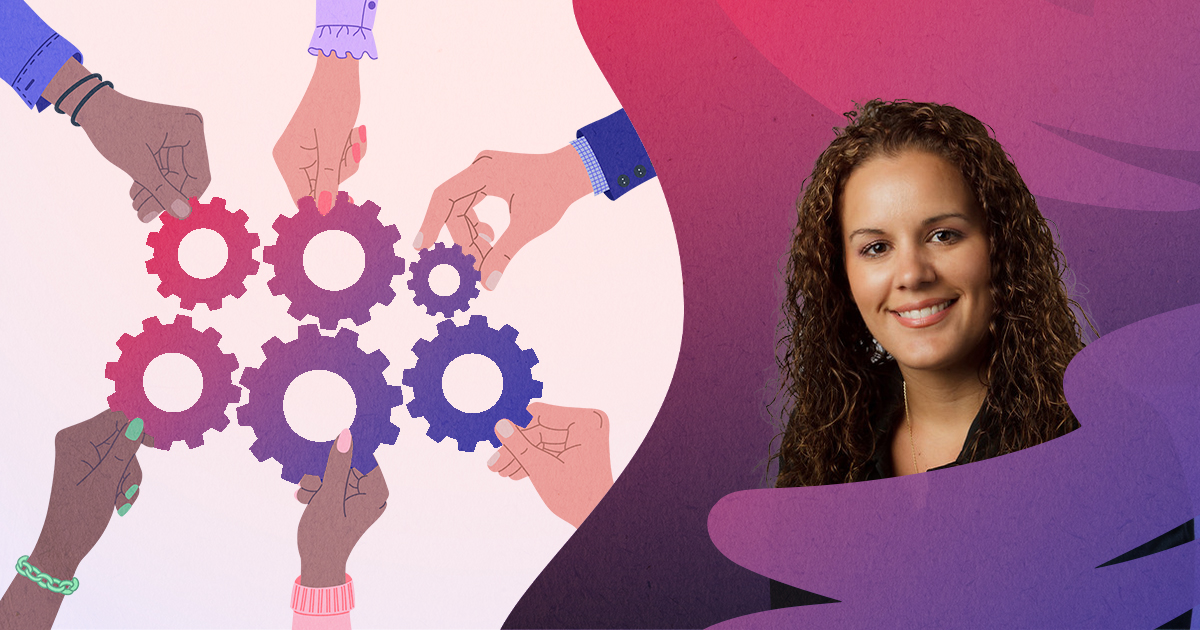
Jamie McCrary
While earning her PhD in marketing at the University of Arizona, Kelli Frias grew fascinated with entrepreneurship. She was inspired by how angel investors at her school helped drive the development of new technology and wanted to encourage the same innovation through her work.
To help broaden and diversify her thinking, Frias began taking classes in law, a discipline that provides essential context for product development. This, in combination with her primary focus on marketing and her public policy background, provided the interdisciplinary experience she needed to research and teach innovation.
“I saw a gap in how marketing is approached and wanted to fill it,” she says.
The entrepreneurship space is so critical. We can't operate in silos, and as technology becomes more advanced, it behooves us to know more about what's happening in multiple disciplines.”

Kelli Frias
Professor of Marketing, Kogod School of Business
This same entrepreneurial verve seeded the launch of AU’s Market Impact Hub (MIH), an online platform for multidisciplinary research and community engagement. Co-founded by Frias in 2021, MIH offers Kogod faculty, students, and alums a synergistic place to explore and engage with each other’s work—and generate new ideas and collaborations.
“There’s so much great work happening at Kogod; we have this cluster of expertise that other places don't,” says Frias. “I felt we really needed to showcase that.”
Frias also helped launch the Health Consumer Affordability Research & Engagement Lab (HealthCARE Lab), a research collective focused on consumer decision-making in healthcare. The Lab investigates consumer perceptions of affordability and its impact on the type of care patients choose, especially immigrants and minorities.
Currently, Frias is focused on marketing strategy and new product development, two areas that naturally tie into entrepreneurship and innovation. To learn more about Frias’ story and how she’s helping drive innovation at Kogod and beyond, read on for our in-depth Q&A interview with her below.
In what ways has your interdisciplinary background fueled your passion for entrepreneurship?
My interest in entrepreneurship ultimately stems from innovation and new product development, as they naturally have an interdisciplinary focus. When I worked with angel investors at UA, I realized they also often come from a variety of backgrounds. We asked questions that integrated multiple disciplines: ‘What are the design aspects of the technology? How can I protect that technology against any sort of environmental issues?’
What makes innovation so important for marketing as a field?
In my mind, it’s difficult to differentiate the two disciplines because innovation is so critical to marketing. Think about how we shape markets, technology, and consumer behavior; we’d be stagnant without it.I think marketing and innovation are one and the same."

Kelli Frias
Professor of Marketing, Kogod School of Business
Why did you choose marketing strategy as a research focus area?
I’m particularly interested in interfirm relationships; marketing strategy gives me the opportunity to examine issues such as intellectual property protection and contract law while also exploring how these laws and practices impact the way companies operate with one another. In some cases, I also investigate how technology is commercialized and how markets are shaped.
What inspired you to cofound the Market Impact Hub?
We have some of the best scholars in the world working on consumer well-being and macro-marketing issues at Kogod. I wanted to find a way to highlight this. MIH also gives students an opportunity to learn more about the work that we do. I am especially proud of this–engaging more students in research endeavors so they can explore different marketing opportunities in both industry and academia.
How can Kogod students and members of the community ensure that they’re pursuing the MIH values–scientific rigor, synergy, and community–in their work and research?
I think curiosity is at the heart of scientific rigor, synergy, and community—curiosity about the world and how collaboration helps us understand one another. These are values we discuss in my classes, particularly by questioning data.
What’s your vision for the Hub moving forward?
I'd like to get more students involved. I think if we can build relationships where students are also better understanding the kinds of research that's happening, how they think about the research, and possibly bringing in community partners, I think that would be awesome to have, you know, partnerships with businesses in the community that also want to work on issues of consumer wellbeing or public policy.
